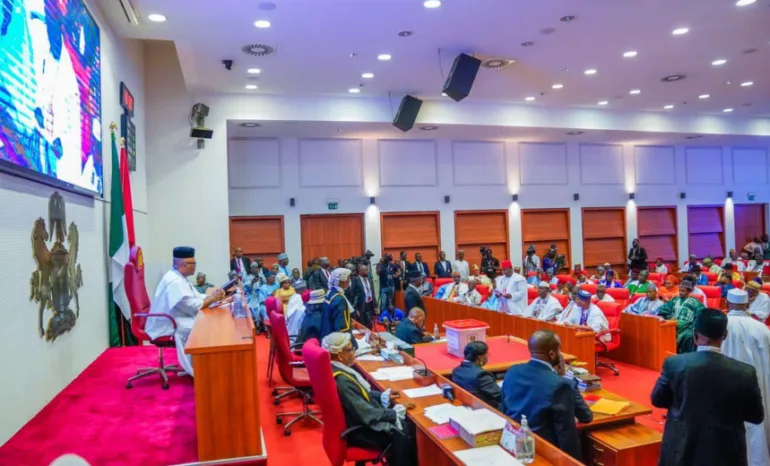The Senate on Tuesday approved President Bola Tinubu’s external borrowing request totaling over $21 billion for the 2025–2026 fiscal cycle, enabling full implementation of the 2025 Appropriation Act.
The borrowing package includes $21.19 billion in foreign loans, €4 billion, ¥15 billion, a $65 million grant, and domestic borrowing through government bonds amounting to approximately ₦757 billion. It also includes approval to raise up to $2 billion through a foreign-currency-denominated instrument in the domestic market.
Approval followed the presentation of a report by Senator Aliyu Wamako, Chairman of the Senate Committee on Local and Foreign Debt, who explained that the borrowing plan was first submitted to the National Assembly on May 27. Its review was delayed due to the legislative recess and pending documentation from the Debt Management Office.
Senator Olamilekan Adeola, Chairman of the Senate Committee on Appropriations, noted that the bulk of the loan requests were already factored into the Medium-Term Expenditure Framework and the 2025 budget.
“The borrowing is already embedded in the 2025 Appropriation Act. With this approval, we now have all revenue sources, including loans, in place to fully fund the budget,” Adeola said.
While the borrowing plan received broad support, some senators raised concerns about its implications.
Senator Sani Musa clarified that disbursement would be spread over six years, not limited to the 2025 calendar year. He defended the move, stating “There’s no economy that grows without borrowing. What we are doing is in line with global best practices.”
Senator Adetokunbo Abiru, Chair of the Senate Committee on Banking, Insurance, and Other Financial Institutions, emphasized that the loans are concessional and comply with the Fiscal Responsibility Act and the Debt Management Act.
“These loans are long-term, some with tenors ranging from 20 to 35 years, and they are strictly tied to capital and human development projects,” he explained.
However, Senator Abdul Ningi (Bauchi Central) called for greater transparency, urging lawmakers to ensure Nigerians understand the scope and intended impact of the loans.
“We need to tell our constituents exactly how much is being borrowed in their name, and for what purpose,” he said.
The borrowing plan targets key sectors including infrastructure, agriculture, security, power, housing, and digital connectivity. One of the major allocations is a $3 billion investment for the revitalization of the Eastern Rail Corridor, stretching from Port Harcourt to Maiduguri.
Senator Victor Umeh (Anambra Central) described the rail project as a significant milestone:
“This is the first time I’ve seen $3 billion allocated to rebuild the eastern rail line. That alone justifies my full support.”
Deputy Senate President Jibrin Barau praised the committee’s work and said the plan reflects national inclusivity “This shows that the Renewed Hope Agenda is working. No region is left out.”
Senate leadership reiterated that all borrowed funds must be deployed strictly for capital and development projects, in accordance with public finance regulations.


